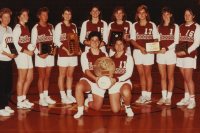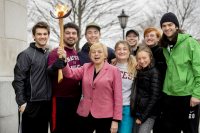
As the Class of 2023 launches into the world, another class — Class of 2018 — has returned to campus to celebrate its first Bates Reunion this weekend.
We turned to these young grads, with their five years of post-Bates experience, and to Hoi Ning Ngai, the Center for Purposeful Work’s director of employer engagement and business advising, for advice and tips on navigating life after Bates. We’ve also added tips and insights that other Bates folks have shared in recent weeks.
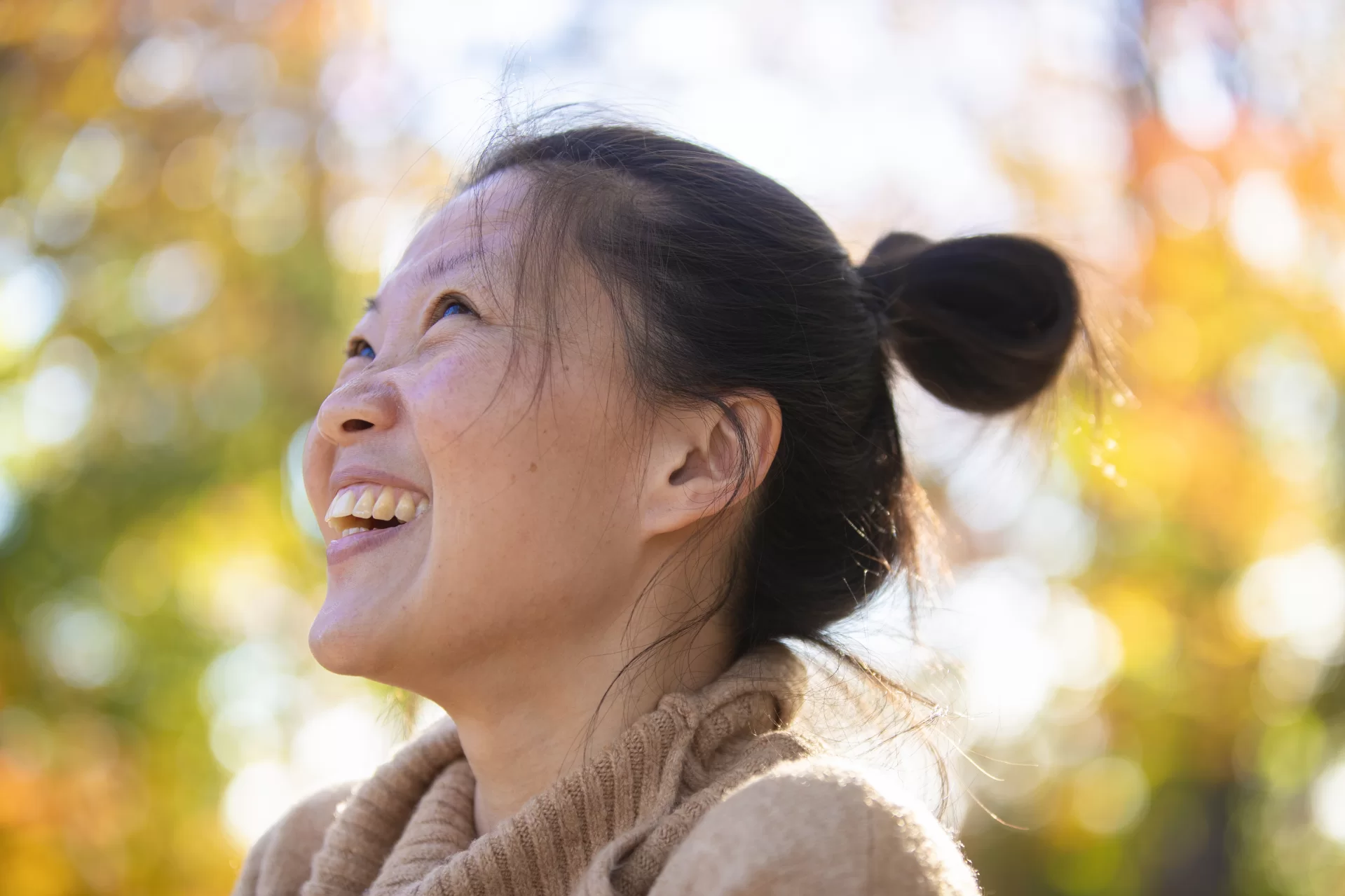
First and foremost, Ngai said, know that it’s fine to feel unsettled. Life is like riding a big-city subway: Constantly stopping, starting, moving. Finding your balance is hard, Ngai assured. You can move with the motion of the train, or resist it. Embrace the former, she said.
“You want to get stable, hold onto that pole. But you also want to move with the subway, rock with the subway. If you stand stick-straight without shifting and moving in the space, you’re going to fall over and it’s going to hurt. So if you can engage with maximum flexibility, you can navigate the space more easily,” she said.
Long dinners in Commons won’t be a part of daily life anymore, but Ngai said you should continue to have the same thoughtful conversations you remember from those days. Don’t stop doing self-reflection, trying new things. Being able to go with the flow requires knowing yourself and the world around you.
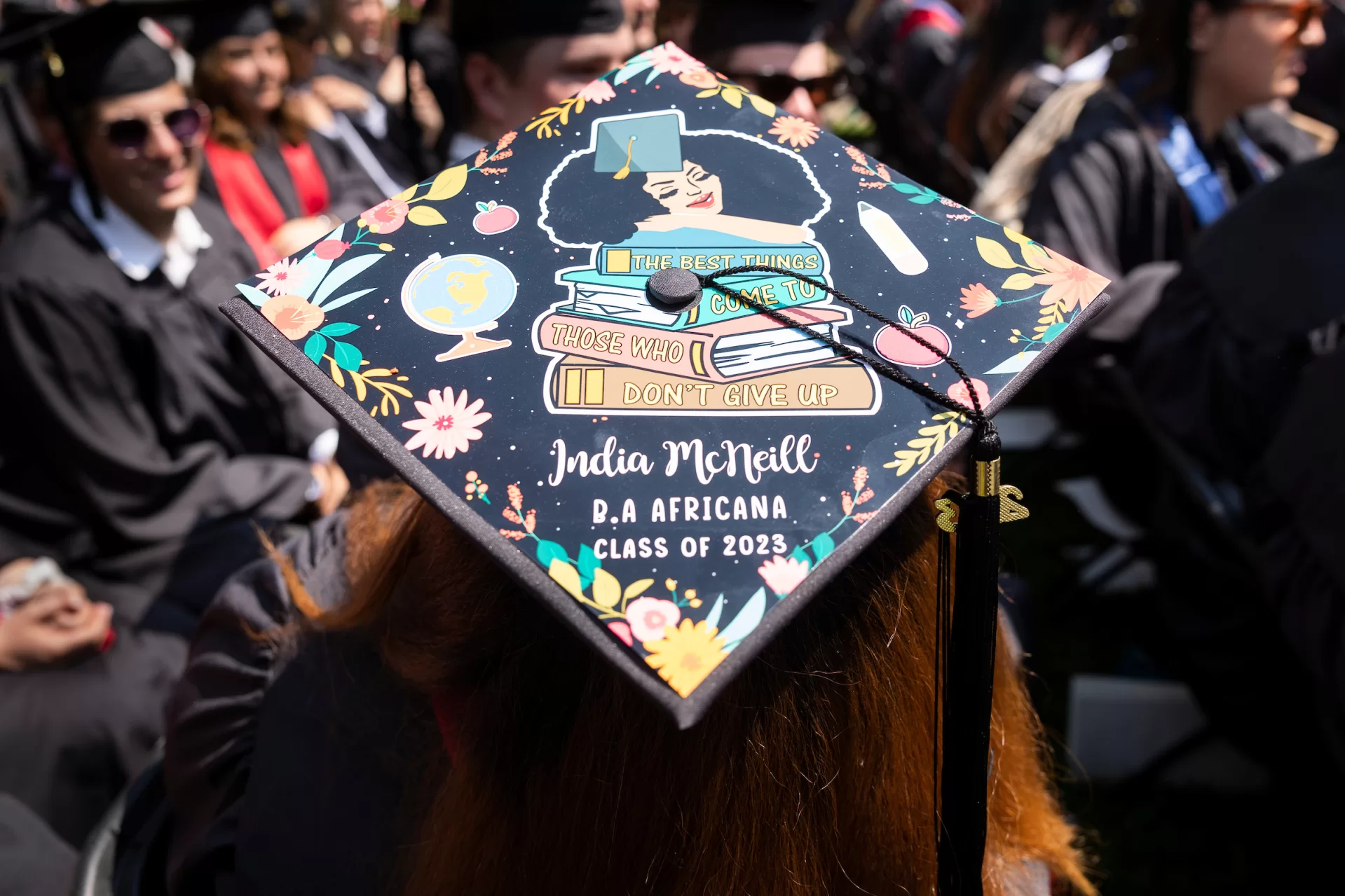
“If you can know what you care about most in this moment, I think you can exist in the chaos,” she offered.
We collected more than a dozen other thoughtful tips from others in the Bates community to help recent grads find balance and purpose on that subway trip of life.
Take a Leap
Dylan Bilski ’18, a global market analyst at Crédit Agricole CIB in London, advised new grads “try to do something you fear. You’ll learn more about yourself and be better off for it. You may end up enjoying it more than anything else you’ve done.”
Likewise, Katie Hartnett ’18 advised graduates to enjoy the journey, no matter what. A medical student and Rural Health Scholar at the Geisel School of Medicine at Dartmouth College, Hartnett has applied this approach as she learns to provide care to rural, underserved patient populations.
“Your whole life will be a journey of figuring out who you are and how you want to spend your time. Try to enjoy the growth and ‘figuring it out’ as it comes,” she said.
Sam Levin ’18 agreed: It’s good to be adventurous. Levin, who works in Florida for video game developer Forgotten Empires, recommended: “try new things, go to new places. Obviously, stability is important, but sometimes finding out what you don’t want to do is important, too.”
That’s what Riley Ewing ’18 learned. He got a “career job” after Bates which helped him pay off student loans “but found that it wasn’t for me at this time of my life.” He now works seasonal jobs in Montana. “Don’t be afraid to take the leap into a more unconventional job, if you have the means.”
Every Step Counts
The well-known saying by Chinese philosopher Lao Tzu notes that the “journey of a thousand miles begins with a single step.”
President Clayton Spencer referenced that saying during Commencement and told graduates: Trying to answer the question “What am I going to do with my life?” is not the task at hand, she said. Rather, ask, “What is a right next step for me?” Not “the” right next step, but “a” right next step.
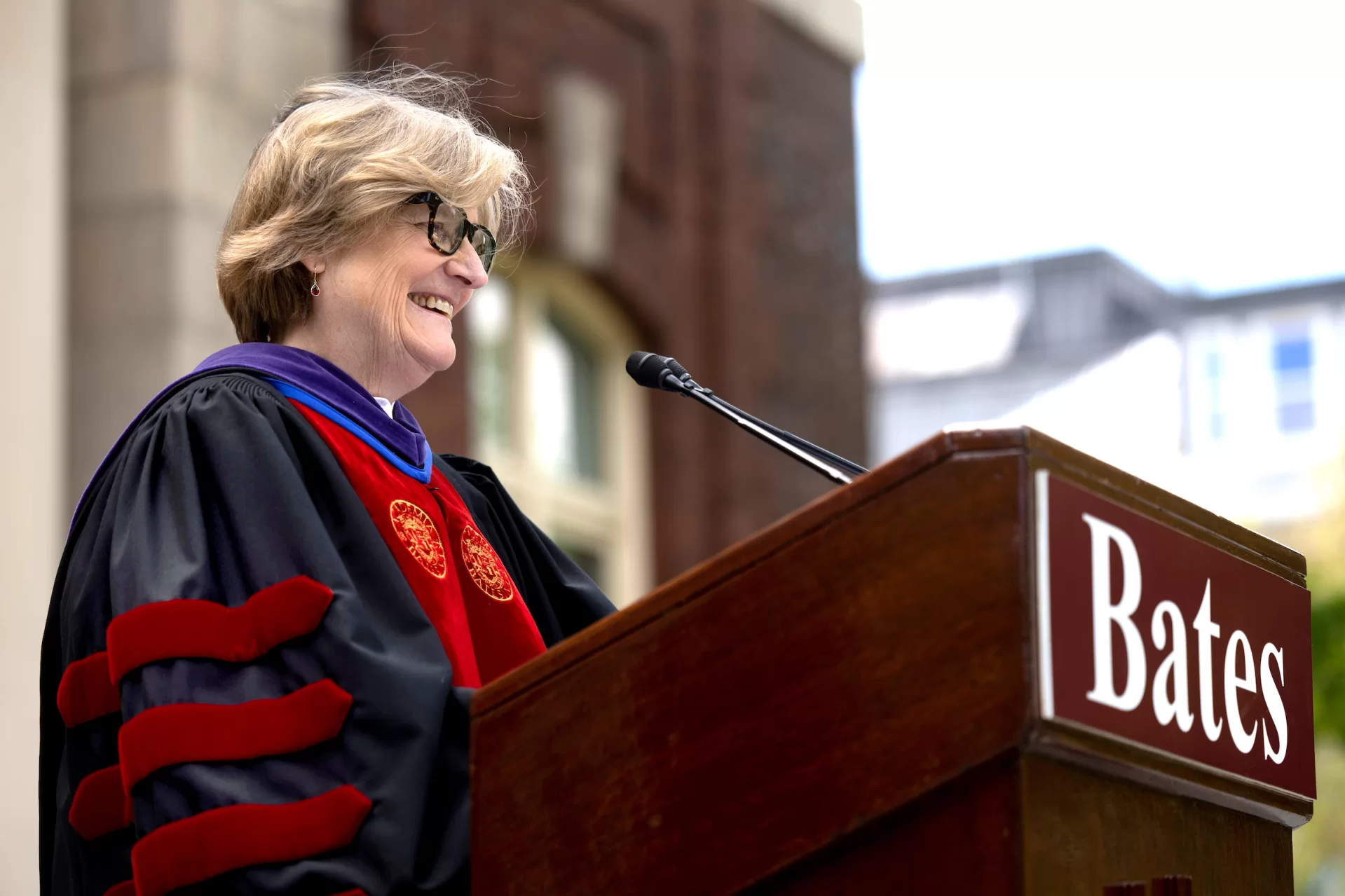
The beauty of that approach, Spencer said, is that “each step on your journey is a step you will learn from. You will learn practical skills — like how to drag yourself out of bed in the morning… You will also learn more existential lessons, like how to deal with difficult housemates or colleagues…. And the great news is, in the decade of your 20s, there is plenty of time for do-overs and re-invention.”
Stay Hopeful
Staying positive is critical, urged Nate Stephenson ’18, a theater major who first went to work as a tour narrator for Boston Harbor Cruises.
“Things happen a lot slower when they aren’t changing over every semester, so patience is key. And if it feels like things aren’t happening, don’t let that worry you,” he advised.
Mats Terwiesch ’18, a product manager at WHOOP, a wellness and fitness company in Boston, agreed, pointing out that your dreams may not happen as quickly as you’d like. Fear not, he said.
That mindset is what led him from Bates to row for the U.S. national team.
“You’ll be shocked what can happen… Also, since it’s going to take a while, you might as well have fun along the way,” Terwiesch said.
Stay Connected
Rachel Forcillo ’18, a graphic designer in New York who previously worked as a staff member at Bates in the Center for Purposeful Work, urged grads not to be afraid to ask for help. “Life is not meant to be done on your own. There are going to be challenges that you can’t get through on your own,” she said.
Ainsley Jamieson ’18, a scheduler and operations director at the U.S. House of Representatives in Washington, D.C., said that Bates friendships and relationships can help navigate your path forward. Stay connected to other Bates alums through alumni events, homecoming, or locally held panels, Jamieson said.
“Continue to cultivate relationships with your professors, alumni, mentors, and classmates who can offer guidance and support. Building a strong network will open doors to potential job opportunities and valuable insights.”
Stay Authentic
Grace Jurkovich ’18, a policy and project coordinator at Health Care For All in Boston, reminded graduates to hold tight to the honest friendships they found at Bates.
“Bates is super special for so many people, and exiting that is tricky for many people. Your friends want to know how you’re really doing,” she said.
Stay Flexible
Kian Moaledj ’23, who addressed his classmates during Baccalaureate this year, suggested that they “reject the origin story,” avoiding self-assumptions about where a Bates degree should take them. The future, Moaledj said, should not be viewed as a set, linear trajectory, but as “flexible landscapes that we each can make our own.”
“Letting go of expectations tied to an origin story was what helped me reconcile a predestined narrative with life’s realities. It is an approach we can lean on to make sense of the unpredictability of our lived experiences,” he said.
Remember, ‘You Are Enough’
At Baccalaureate, senior parents Sudha Mulpur and Tamah Rosker offered advice during their offering of “Reflections from Parents, Guardians, and Loved Ones.”
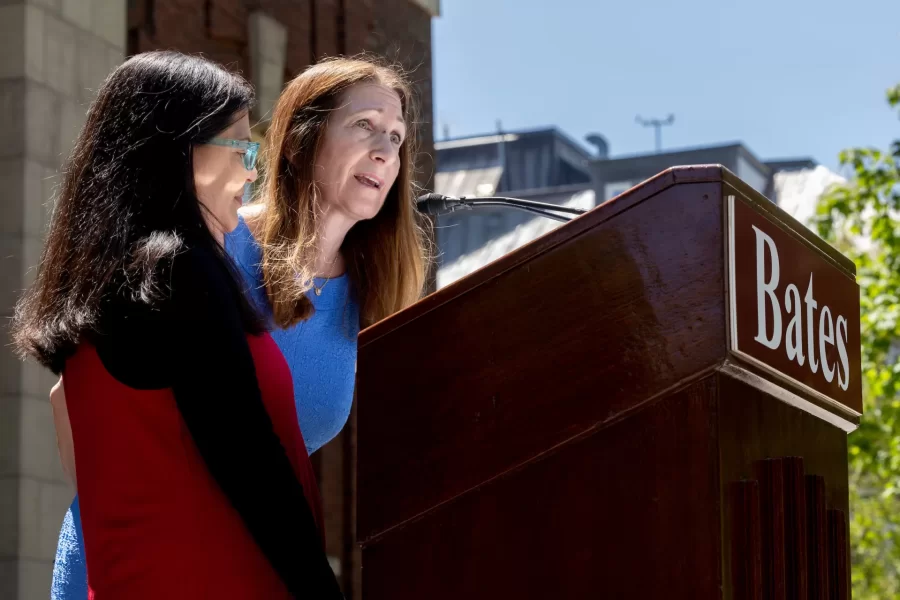
Rosker said to “always remember to see the faces around you — the faces of family and friends. Together we are an unbreakable circle of support that will always believe in you and love you.”
Mulpur said, “Be proud of all that you have done, be kind to yourself and everyone else and always remember that you are enough and you have everything you need.”
Just Connect
In the workplace, focus on nurturing real connections with co-workers and bosses, recommended Adedire Fakorede ’18, an assistant vice president and financial solutions advisor at Merrill Lynch financial services, and M.B.A. candidate at The University of Arizona Global Campus.
Those connections go beyond networking. You could share an interest or hobby with a colleague, Fakorede suggested.
Connecting includes expressing gratitude during your job search, said Sierra Ryder ’18, who transitioned from broadcast journalism to communications, now working as an alpine press officer for the U.S. Ski and Snowboard Team. “Don’t underestimate the power of written thank-you notes,” she said. And connecting also means “cold emails or LinkedIn messages and unwavering persistence.”
Remember that ‘You Are Held’
At this year’s Commencement, the Rev. Brittany Longsdorf offered advice to the graduates tucked within the blessing of her Benediction.
At moments of huge transition, like graduation, take a moment to pause and embrace the “space in between” past and future. And remind yourself that “you are held. You are not alone.”
‘I Am Here’
Elliott Vahey ’23 of Shaker Heights, Ohio, offered some advice in her Vignette at Baccalaureate, reminding classmates that gathering together means more than having a happy party.
“I have also come to honor how crucial it is to gather when we are aching. Gathering through grief is a small way of indicating, ‘I am here. I am not going away.’ This does not dilute the hollowness or the pain but a practice of showing up for each other and one that I believe wholeheartedly in.”
